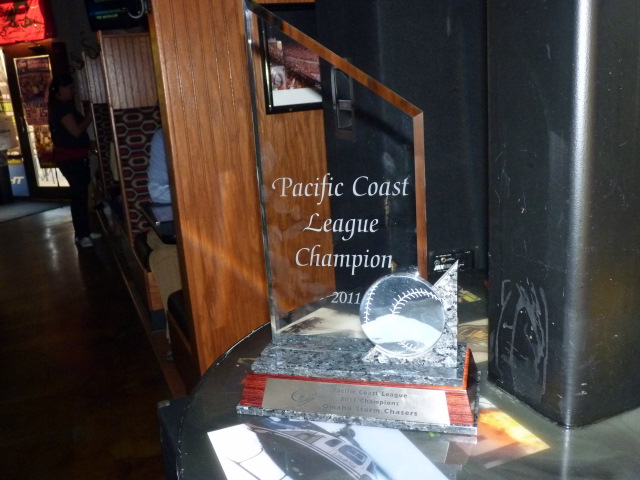 |
| Jack McKeon (Photo: Stan Hall) |
You might think winning the 1970 Championship as the manager of the Omaha Royals would rank pretty far down the list of accomplishments on Jack McKeon’s
resume considering he went on to manage the 2003 Florida Marlins to the World Series title, was twice named the NL manager of the year (1999 and 2003) and managed some 15 years at the big league level with stops in Kansas City (1973-75), Oakland (1977-78), San Diego (1988-90), Cincinnati (1997-2000) and Florida (2003-05).
But McKeon holds the 1970 title in high esteem.
“You’ve gotta look back at my career and say number one is winning the World Series in 2003,” said McKeon, who was at Rosenblatt last night for a dinner honoring the 1970 Championship team. “Number two was in 1999 when I was manager of the year in Cincinnati and we won 96 games and didn’t make the playoffs. And I think after that, number three would be the 1970 team in Omaha.”
McKeon reminisced about that team with the media.
“In ‘70 we started off very slow,” McKeon said. “We had such good, resilient players and despite being out of first place by 10 or 12 games on July the 6th, we came back and won the thing. That’s why I always have fond memories of the ‘70 team. They were like biscuits. You know, when things got hot, they rose to the occasion.”
He didn’t need much prompting to continue talking about the team.
“The ’70 team was special. We never got to .500 until August 1 that year and I kept preaching to the players about the fact that, ‘Hey, get to .500 and we’ll roll.’ Well, you know, I was trying to be politically correct and trying to be optimistic and maybe deep in my heart I didn’t believe it, but I was trying to sell them guys and trying to motivate them. But we got to .500 on August 1st. From August the 1st on, I think we won like 26 out of the next 34 games and ended up winning the pennant by two or three or four games.”
McKeon’s memory is spot on. The Royals went 73-65 in 1970 and went on to
win the East Division of the American Association by three games over the Iowa Oaks. Then they went on to defeat the Denver Bears four games to one to win the championship. The 1970 title was the second one for Omaha in just its second year of existence.
Was there one particular moment that turned the season?
“We struggled early in the year and I made a call to Kansas City and I said, ‘Look, we’ve got a bunch of old guys here that can’t play. Let’s get them out of here and bring some young kids in.’ That’s when we brought in the
Lloyd Gladdens, the
Jim Yorks, and a
Charlie Days, and
[Ted] Parks at third base. We brought some of those young players in and they kind of sparked us and, you know, we just started to roll.”
The 1970 season wasn’t the first time McKeon pleaded for younger players in Omaha. He recalled his battle to get young players up with the 1969 team too.
“I remember
Paul Splittorff as a young kid having a very good Spring Training,” McKeon said. “And the director of player development, Charlie Metro, I saw him in Spring Training, and I said, ‘I’d like to have him [Splittorff], and
Jerry Cram and
Al Fitzmorris in Omaha – three young kids and they said, ‘Ah, you can’t have those guys. They’re too young. They’re not ready. You’ll ruin ‘em. They’re over their heads.’
“I kept pleading and pleading and finally they gave in and I remember Charlie Metro telling me, ‘Don’t you come complaining to me in about mid-May or June that these guys can’t cut it.’ I said, ‘Don’t worry about it, I’ll take care of ‘em.’ Well, the rest is history. Each one of them won anywhere from 10 to 13 games that year and we won the pennant by about six or seven games.”
Again, his memory is right on. The Omaha Royals
won the pennant by six games over the Tulsa Oilers in 1969. Splittorff won 12 games that season; Cram won 10; and Fitzmorris won 10.
So, does McKeon ever think about those formative years at the beginning of the organization and the role he played in the success of the organization later in the decade?
“Oh yeah,” McKeon said. “The good thing about not only managing the Royals here in Omaha was the fact that I managed the instructional league team as well. And that gave me an advantage to teach my system – not only to the players in Omaha, but they knew it before they got to Omaha. So, when I became the manager in Kansas City, all these players that graduated up there with me, they knew how to play the game. And fortunately, we had some successful years in Kansas City.”


















